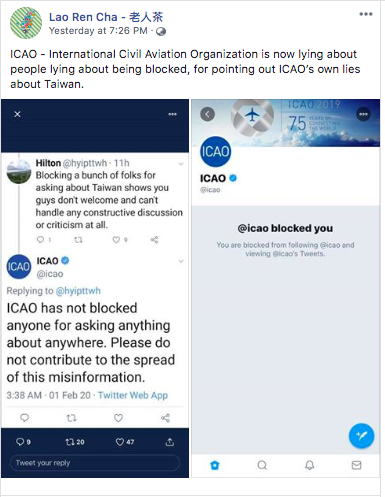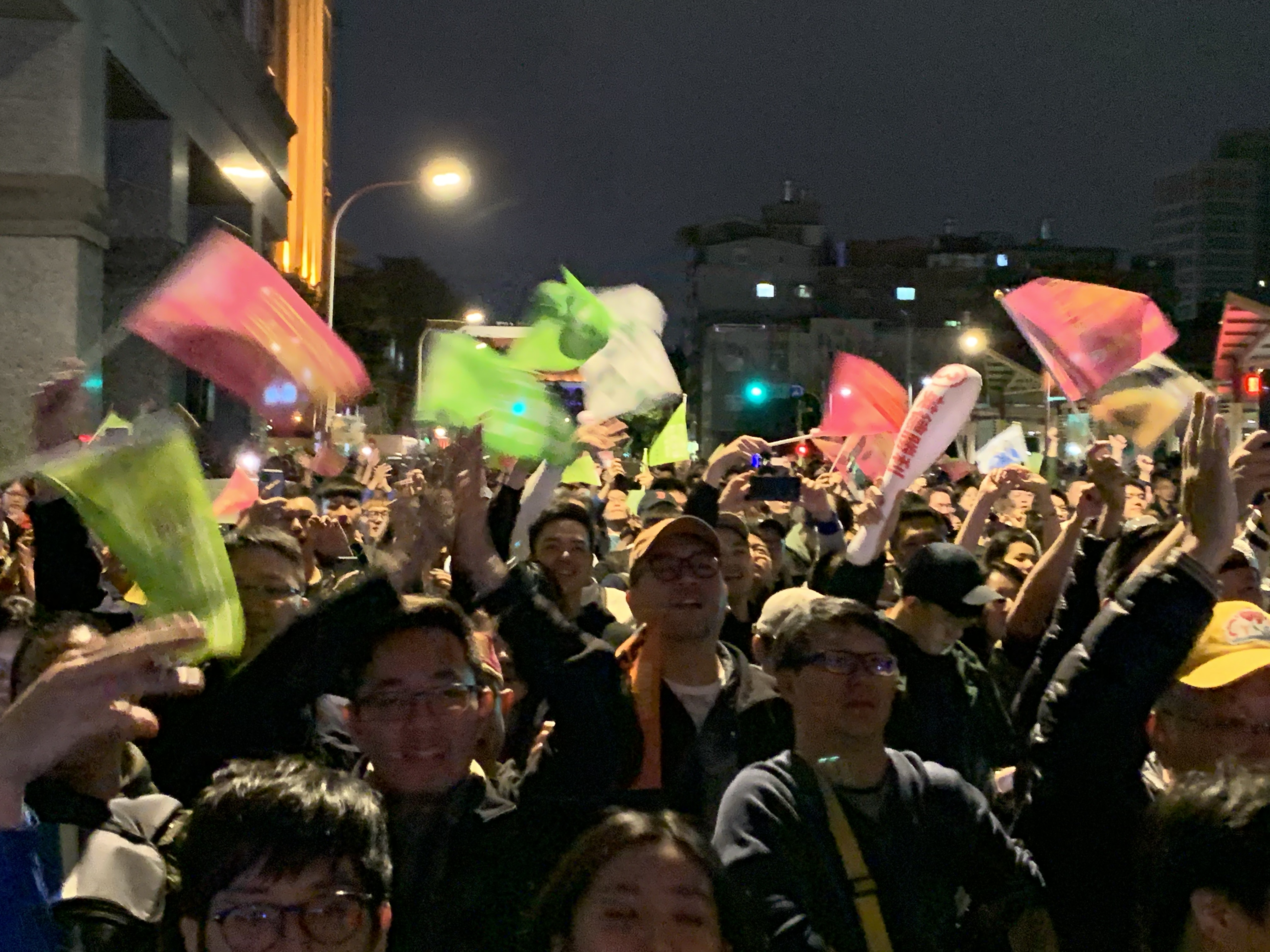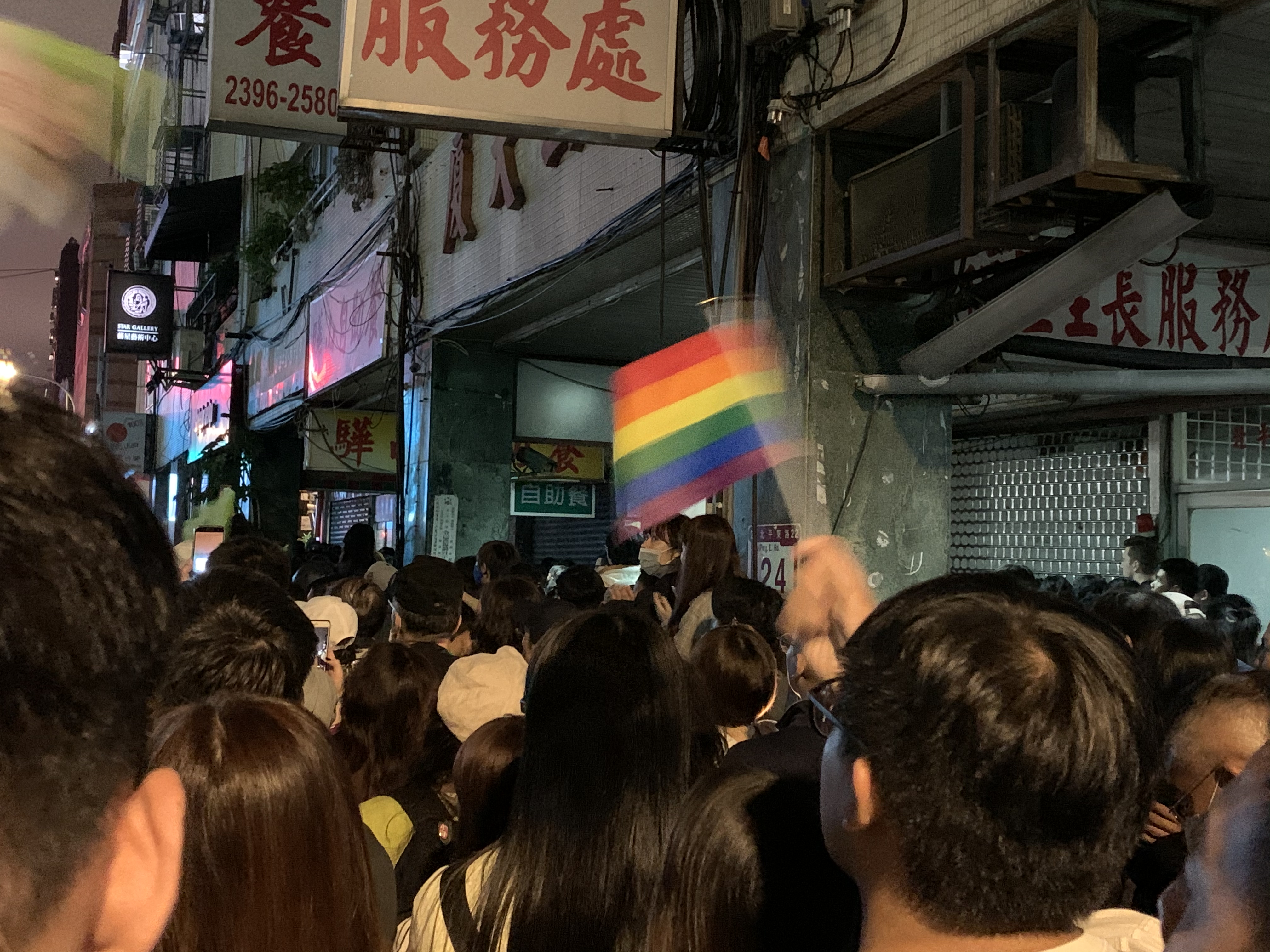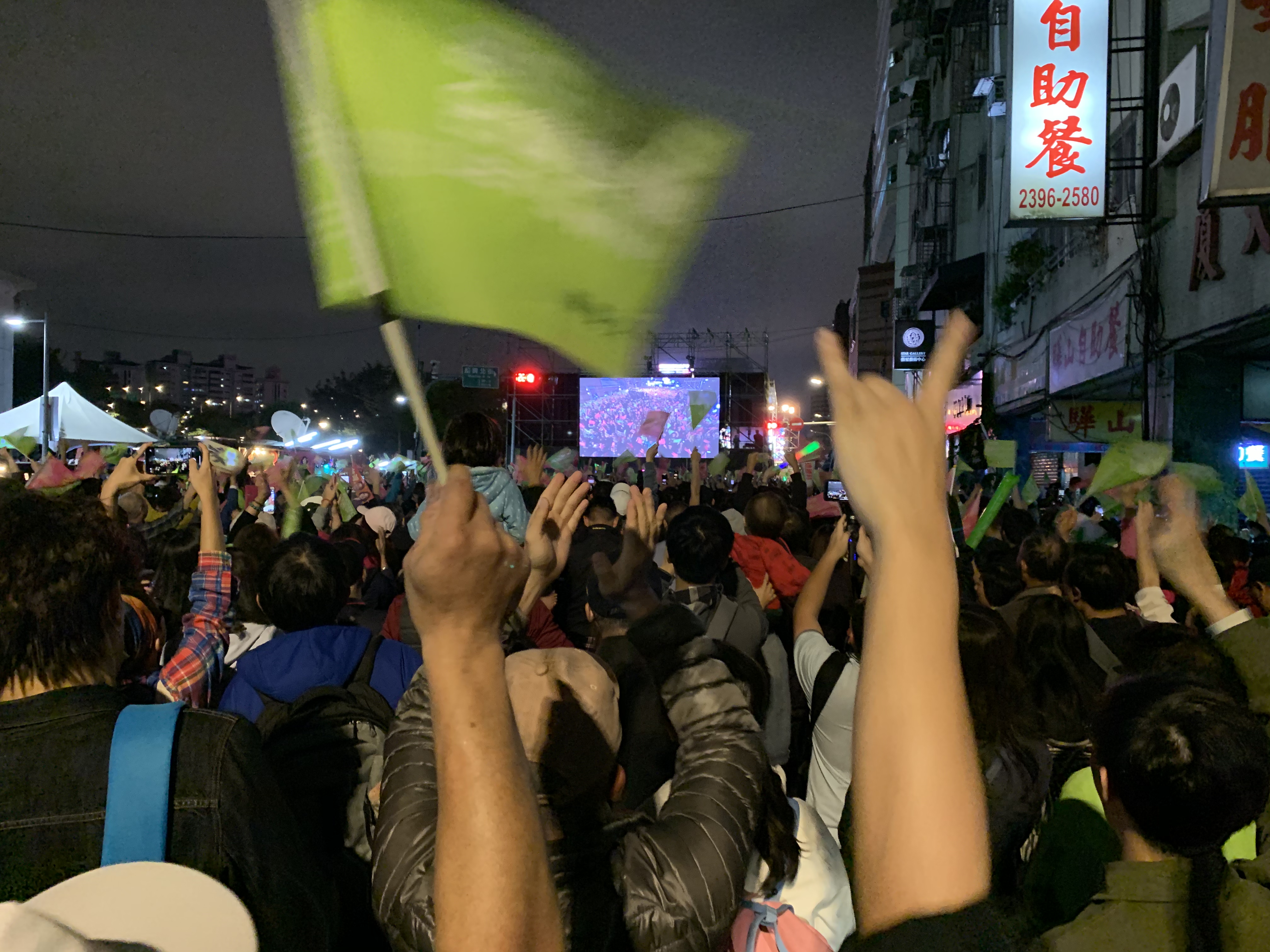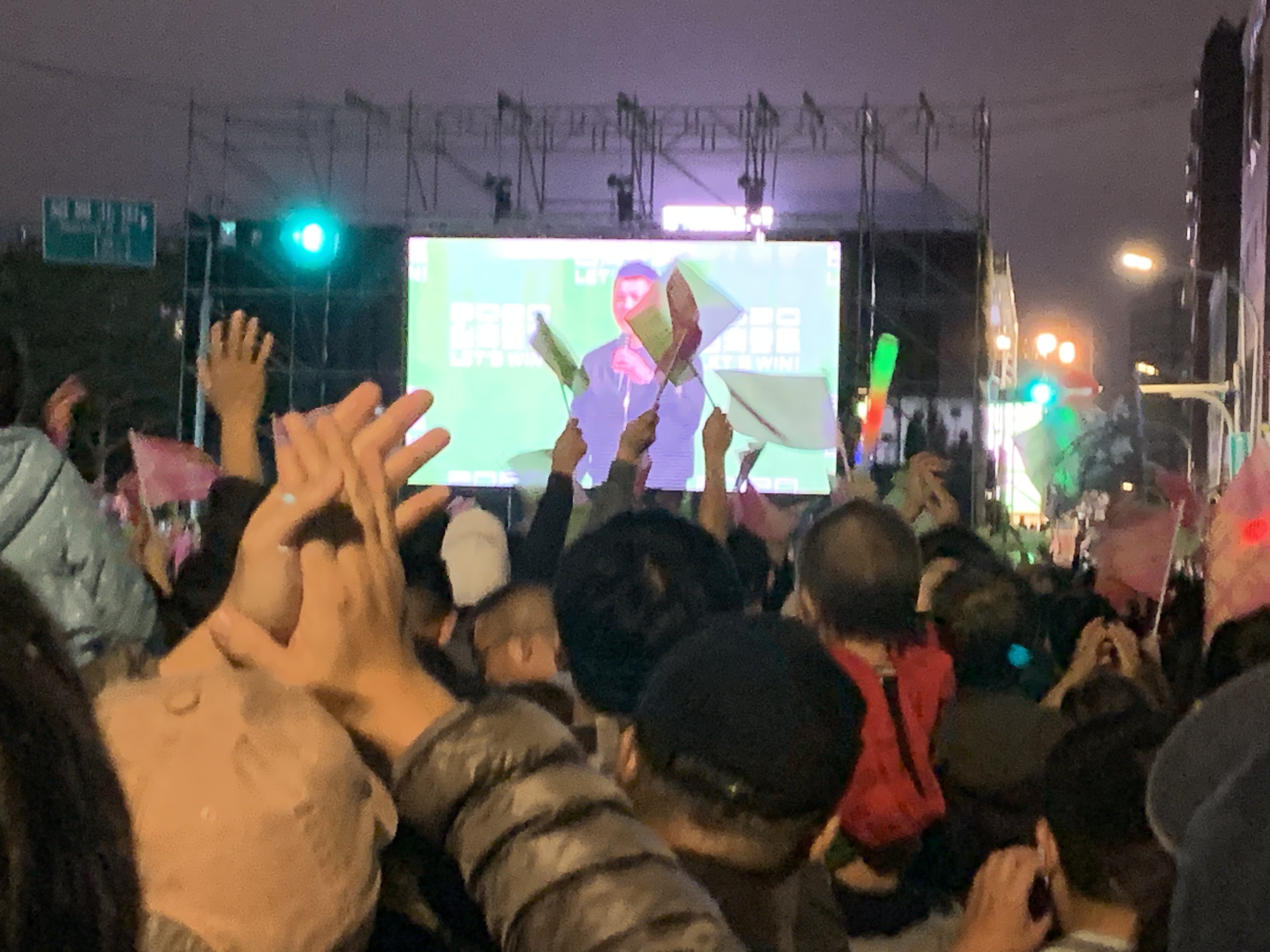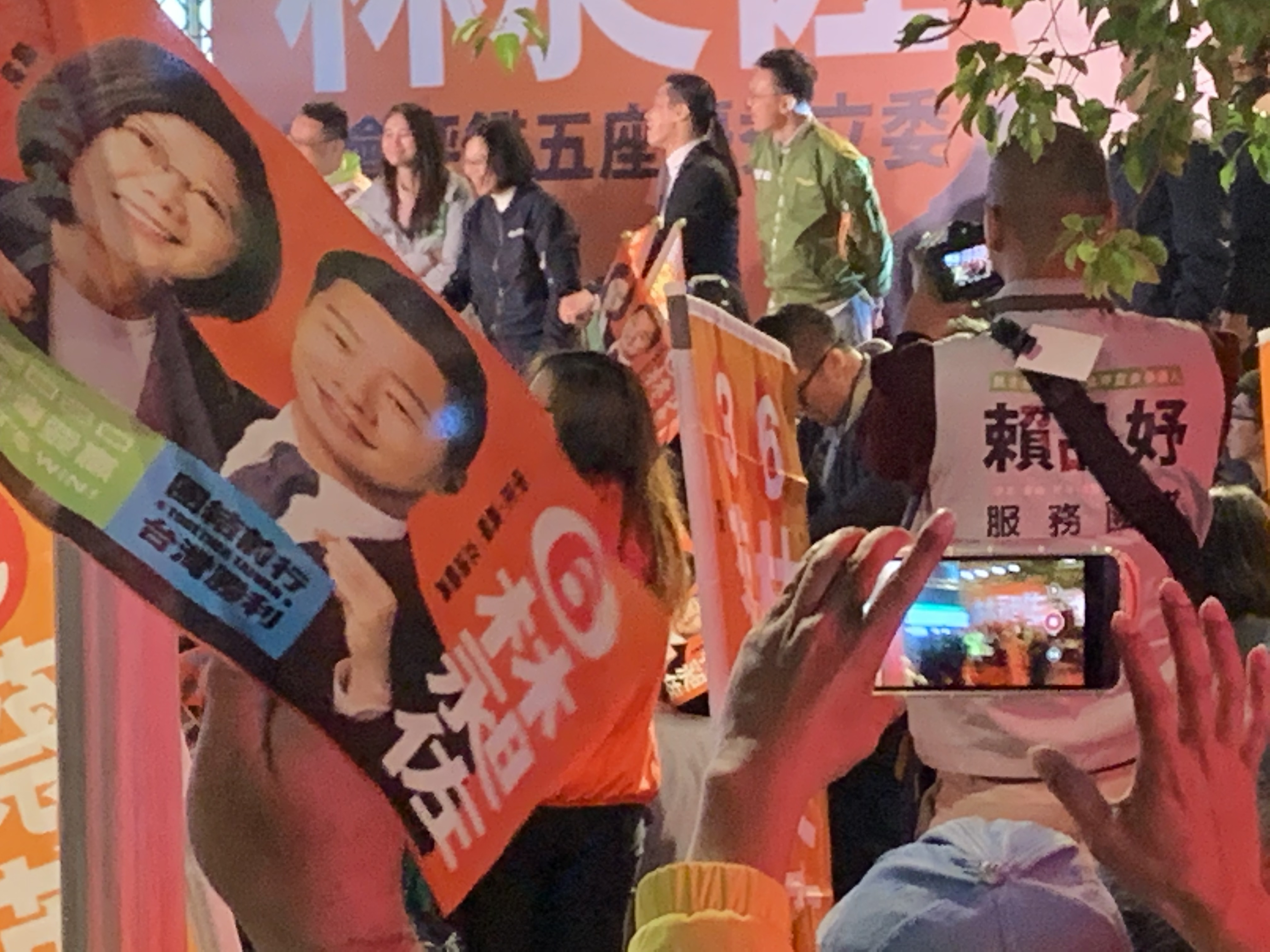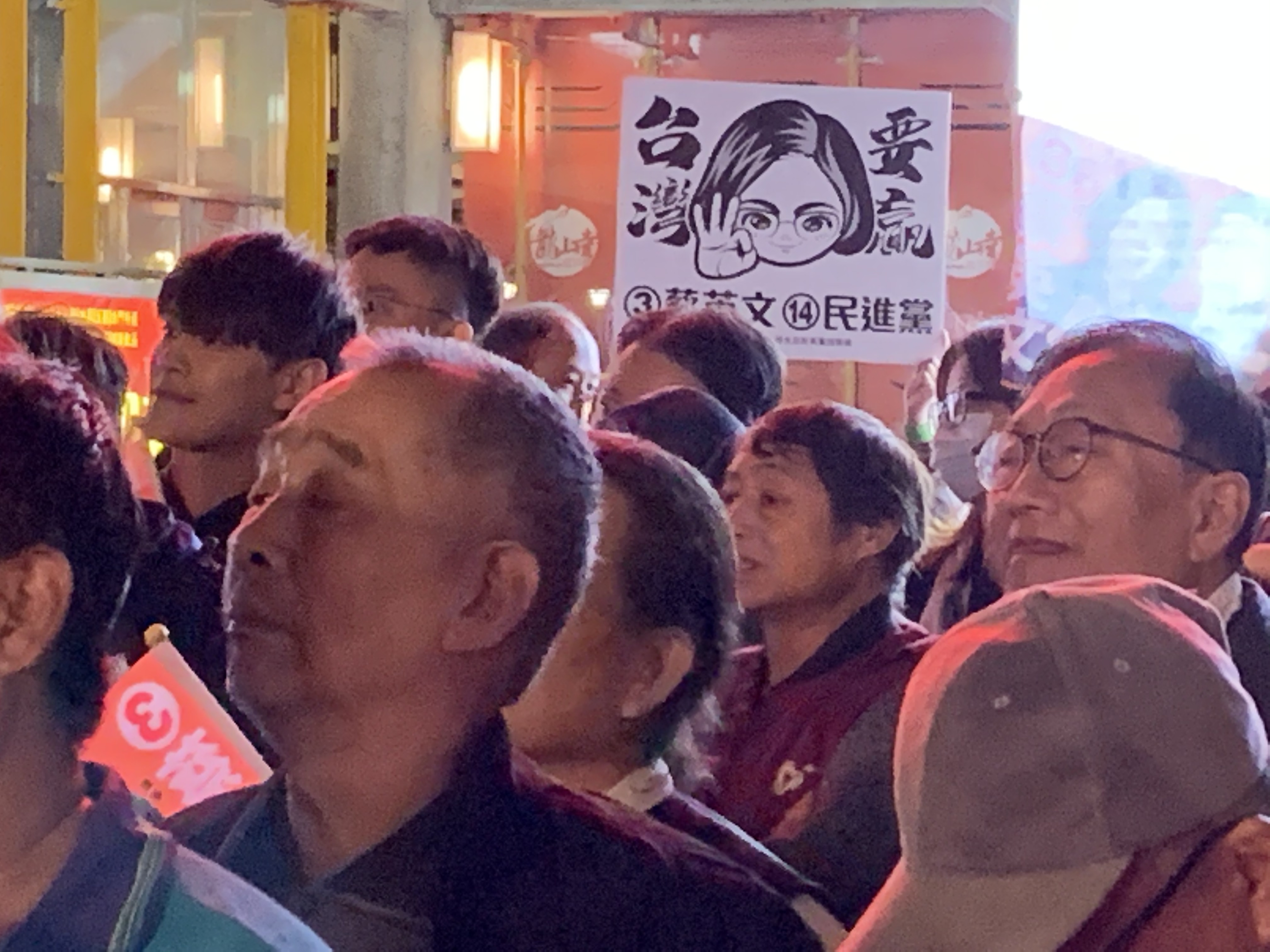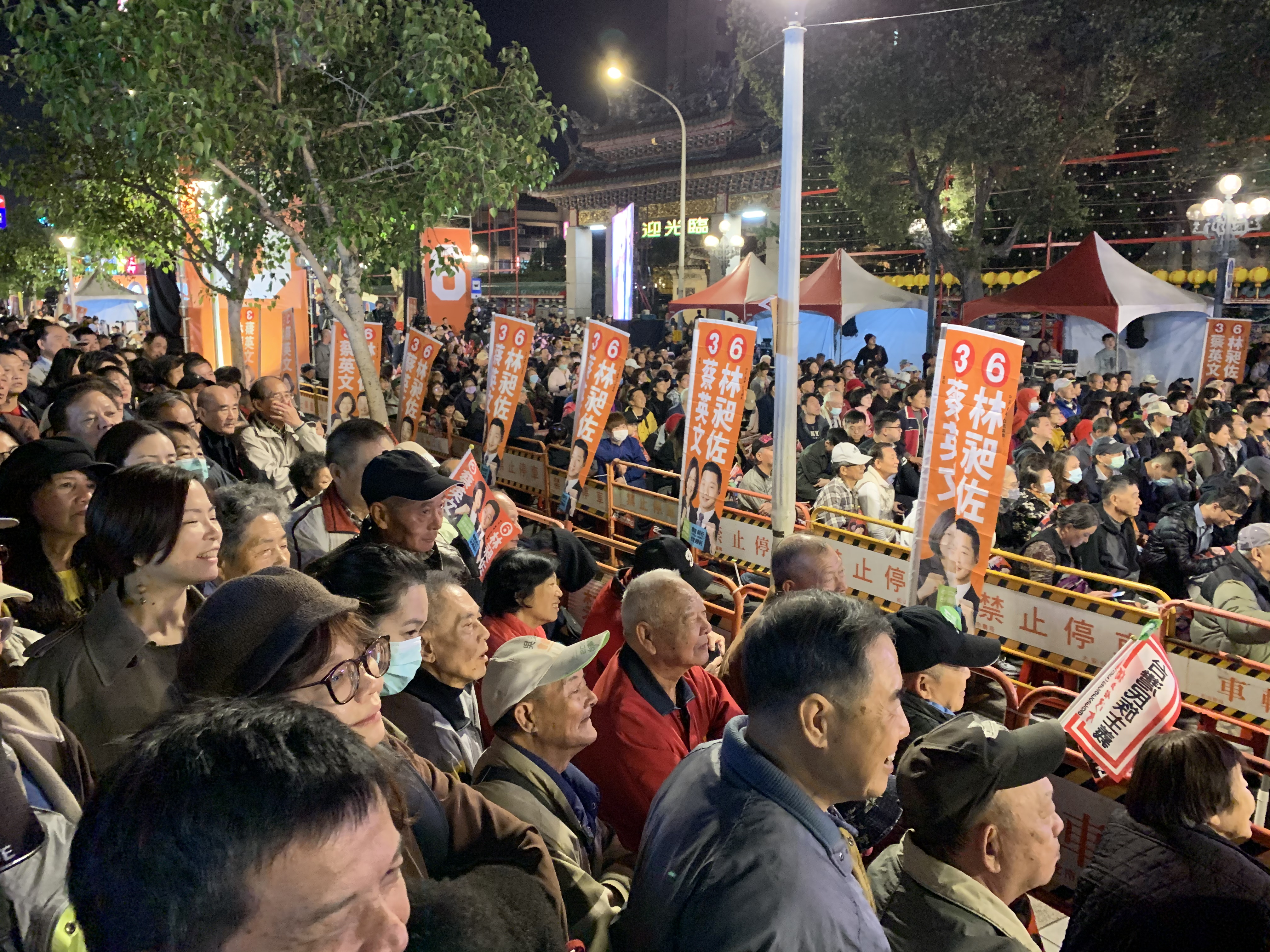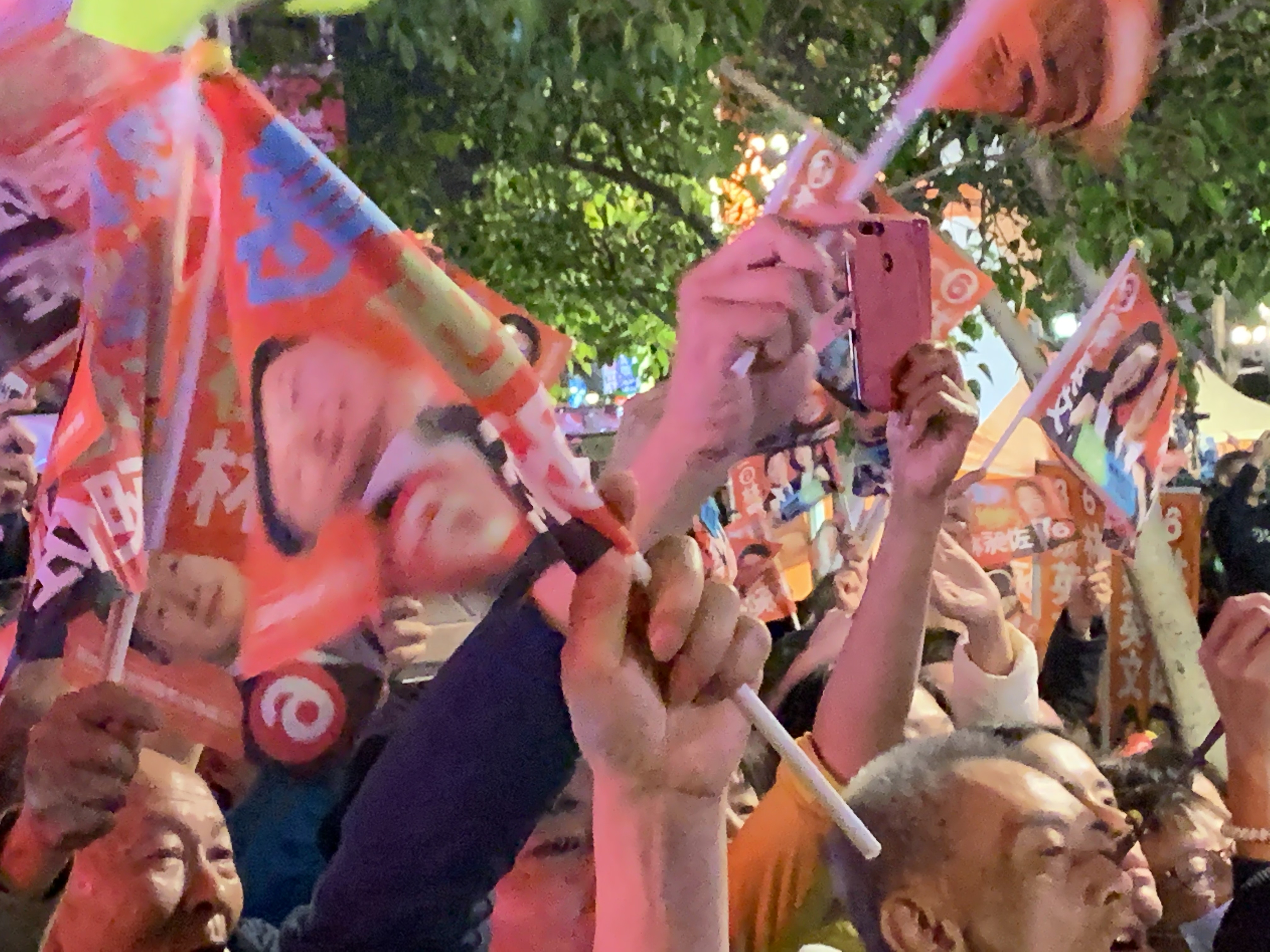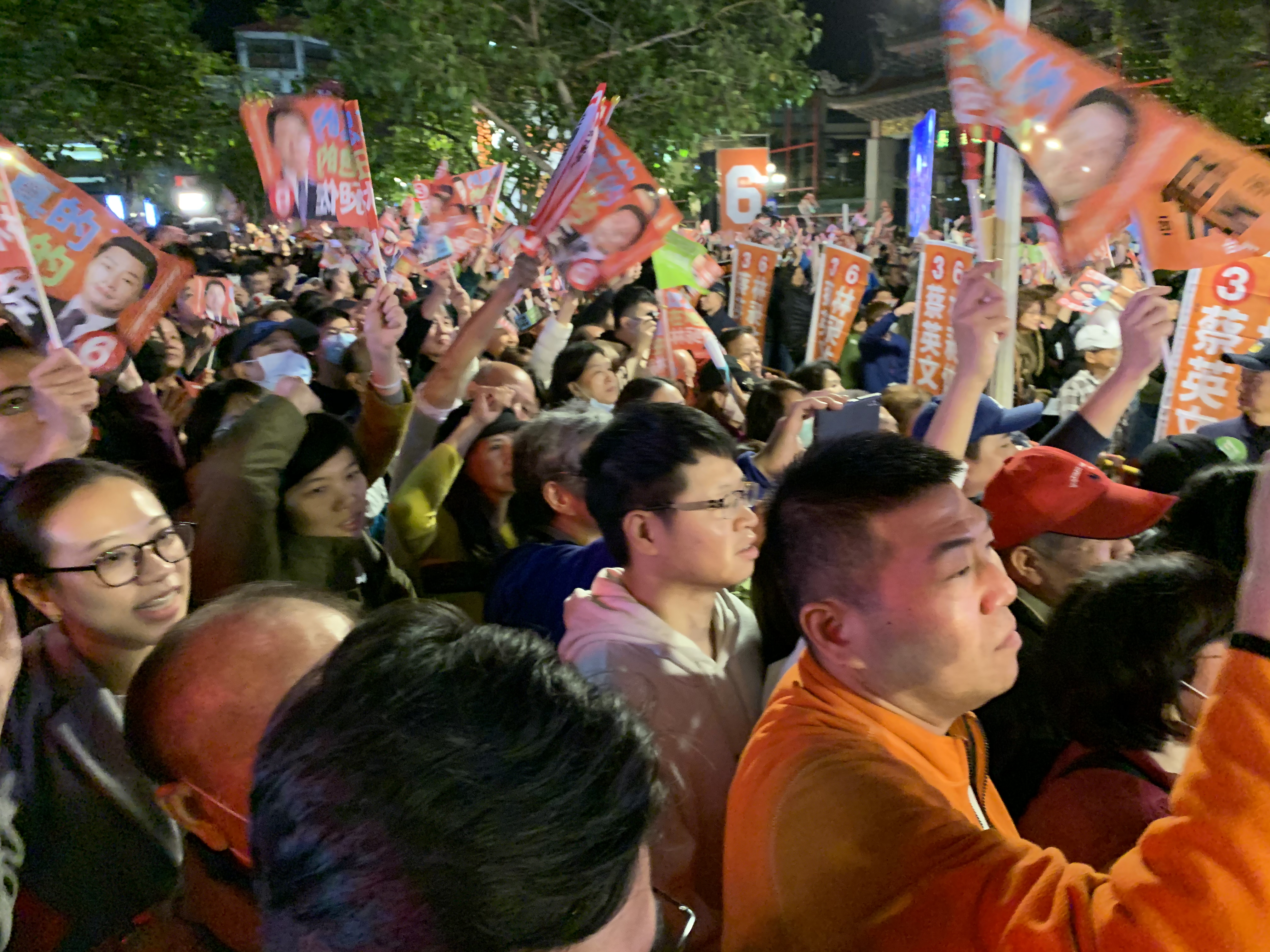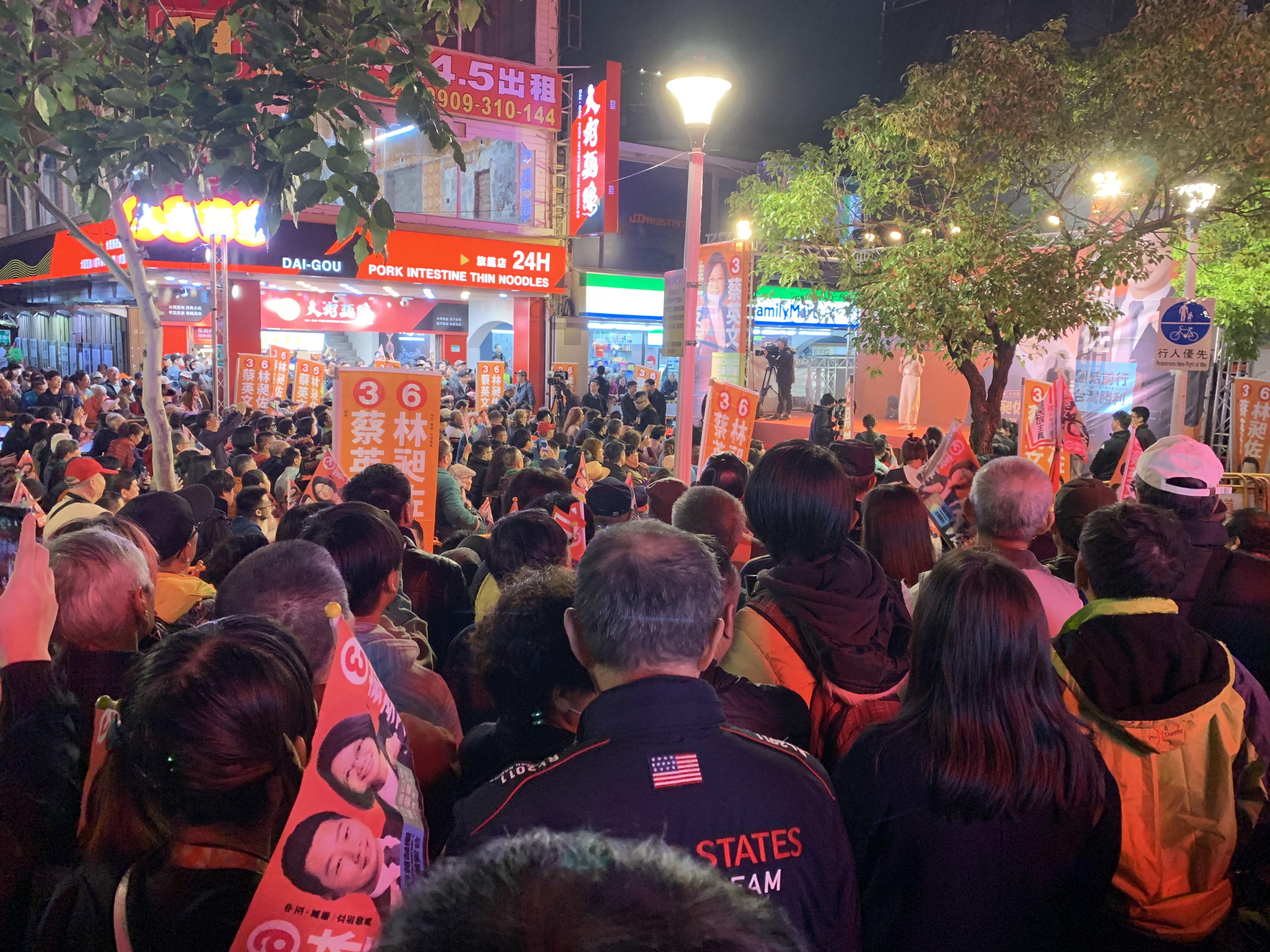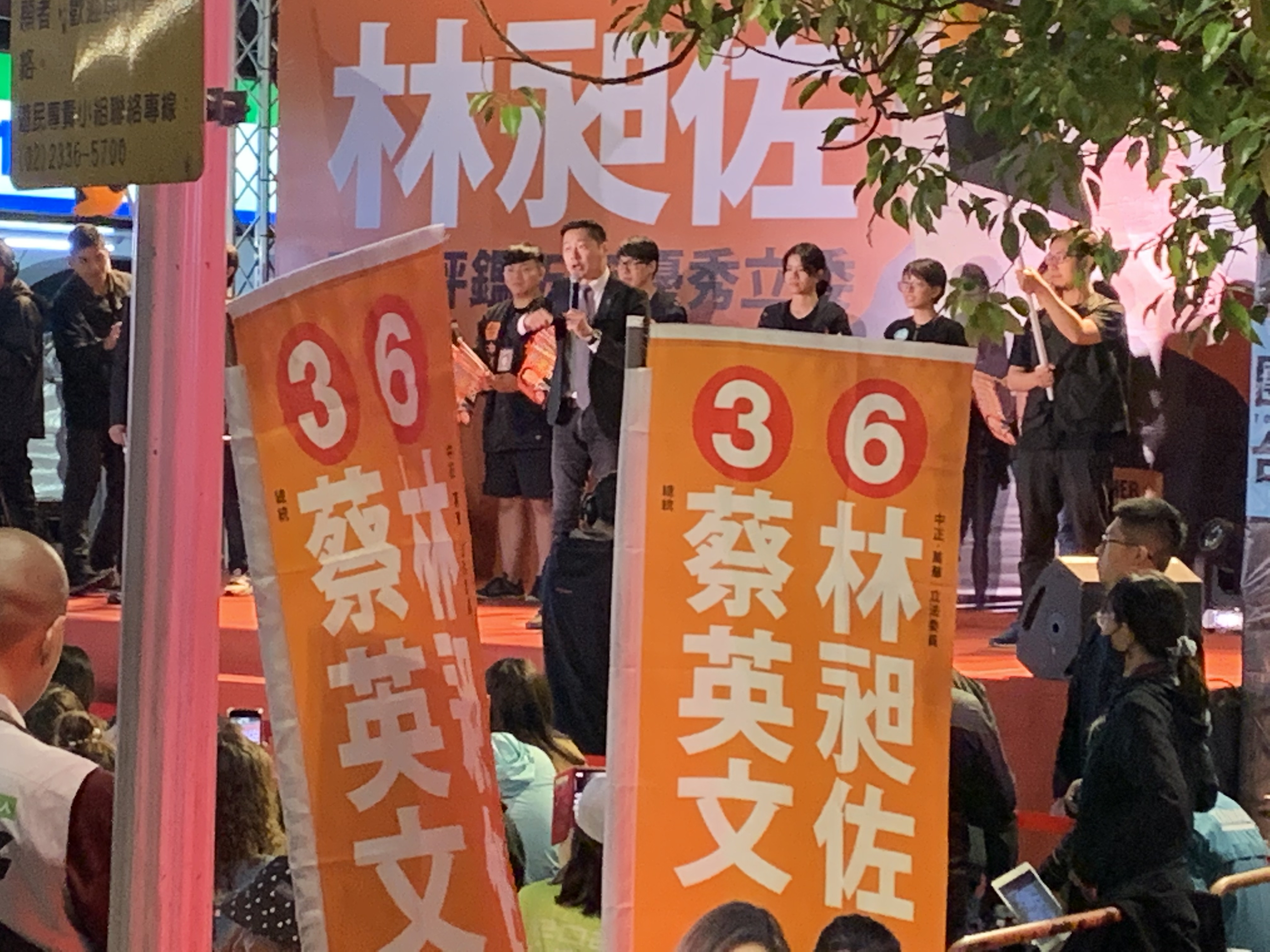 |
| The subtle chaos of this absolutely insane photo collage is intentional. |
There's been a lot of debate online about the various US presidential candidates, and which one is most likely to stand up to China, or have a strong Taiwan policy. However, there's no comprehensive breakdown of each candidate and their views on China alongside any analysis of what that might mean for Taiwan. So I thought I'd make one.
It's almost impossible to answer this, as only one candidate - Andrew Yang - has actually been asked about Taiwan. This is because of racism (not that he was asked, but that the other candidates haven't been). While it's possible to glean some hint of who is best for Taiwan from what they say about Asia, China, the Hong Kong protests and the Uighur human rights crisis, it's mostly speculation.
I love speculation, so let's do this!
I've included all Democratic contenders and Donald Trump - the chances of his being dumped by his own party during the nomination process are nil, and minor party and independent candidates won't take enough of the vote to make a difference. That said, it's worth noting that every non-major party candidate I looked at had an absolutely terrible China policy. In a fairer world, I'd include everyone on any ballot, but I just don't want to write about lost causes like Brian Carroll and Howie Hawkins. I have better things to do with my time.
There's not much order here, though more popular candidates appear toward the top and low-polling ones are lower down. Warning - this gets quite long.
Donald Trump
We're only starting here because he's the current president.
I've noticed a distinct tendency of online commentary to lean towards him being "strong" and "consistent" on China and "good" for Taiwan, but overall I have to disagree. It is true that he's done things regarding China - like actually critically engage them on trade - that Democrats and (probably) establishment Republicans simply would not dare to do, but most of this bluster has been on economic grounds, not human rights issues. And it's true that the people he's put in office, from repugnant John Bolton to admirable Randall Schriver, have generally been good for Taiwan. These are absolute facts.
However, I find it hard to believe that these appointments were made because Trump has a real interest in Taiwan, even as a poker chip or tradable commodity. His interests extend to power, money, sex and food as they relate to himself and his favored children only, and arguably he's not good at any of them. (If you want to add "golf", that's included in power and money.) He appointed people he was recommended to appoint, and that those people have been friendly to Taiwan was most likely a coincidence. There's no presidential intentionality there.
And he's not consistent on China. Quiet down - no, he isn't. For every bit of tough talking or every bill signing of legislation that helps Taiwan, there's been some instance of him calling Xi a "great leader" who is doing an "amazing job" or saying Hong Kong is an "internal matter" for China to solve on its own. Yes, he later signed the Hong Kong Human Rights and Democracy Act (HKHRDA, sponsored by both Bernie Sanders and Elizabeth Warren), and that's great. He's also signed the Taiwan Travel Act. That's fantastic too. Many good things have happened for Taiwan and the region under Trump...but that doesn't mean he is consistent.
Even the Trump-Tsai phone call was not a sign of consistent Taiwan support - soon after, Trump appointed a Beijing-friendly ambassador to China, and the US had to reassure China that it was not revising its "One China" policy (as distinct from China's own One China Principle).
Final call: great things have happened for Taiwan in US politics while he's been in office, but that's not due to him or any views he holds (as he doesn't really seem to hold any which aren't self-serving.) He's not the best choice for Taiwan.
Joe Biden
At first glance, Biden seems like a poor choice for Taiwan (spoiler alert: he is...mostly.) A lot of his foreign policy stances are reminiscent of Obama's, and he's said China is "not competition" for the US. Not necessarily because he thinks the US can engage productively with an aggressive, authoritarian China, but because he thinks they can't even run their own country right. He further said he "wanted [them] to succeed" and pointed to some completely arbitrary issues as their biggest challenges.
That said, it's an astoundingly naive thing to say - China is absolutely a global threat, and as a huge economy with deep trade links and most importantly, having the explicit goal of unseating the US as the global hegemon, they are competition. If you want to end the entire notion of global hegemony, not just the US's, they're a general threat, too.
There's more to it than that, however, and it's not fair to dismiss him with "soft on China, NEXT" without really looking at his actions.
He was one of the only Democratic contenders to have congratulated Tsai on her presidential election win last month (the only other one I can find who did so was Pete Buttigieg). And he specifically called for stronger US-Taiwan links:
“You are stronger because of your free and open society,” Biden, the former U.S. vice president, said in a tweet congratulating Tsai. “The United States should continue strengthening our ties with Taiwan and other like-minded democracies.”
All of that is great, and honestly, we could do worse (see: Mike Bloomberg and Tulsi Gabbard). However, it's a bit vague and I'm going to need to see specifics to counter all the anti-Taiwan crap in his history, outlined below.
Historically he has not been strong on Taiwan, saying (though not generally publicly) that he would not support the Taiwan Security Enhancement Act and that no American would send their children to die fighting for Taiwan.
He's also said this, in 2001:
The US won't come to Taiwan's aid should China attack the country for making a unilateral declaration of independence, US Senator Joseph Biden said on Monday....
...Biden said the Taiwan Relations Act remained the key document governing America's commitments to Taiwan -- remarks widely seen as an attempt to counter a promise by US President George W. Bush that America would do "whatever it took" to defend the country.
Biden in his speech argued for the retention of what he called the "studied ambiguity'' of the 1979 Taiwan Relations Act, whereby the US would remain ambiguous on whether it would help Taiwan repel a Chinese attack.
That act, he said, told Taiwan "you are no longer an independent country. You are no longer an independent nation-state. We've agreed that you are going to be part of China and that you will work it out."
Biden also punctuated his comments with a clear warning: "So don't go declaring independence, because we are not willing to go to war over your unilateral declaration of independence."
Yikes. Why does no-one remember this? Well, as Brendan pointed out, if you deduce the date the quote was made...hm.
Methinks Joe Biden, in 2001, did not actually understand the point of the TRA or any of the related menagerie of assurances or communiques. If he did, he'd understand that the point was not "you're going to be unified, the only question is how to negotiate that peacefully", at least not after it became clear that the ROC government these policies were created for did not actually represent the Taiwanese people.
On China these days, he isn't actually as bad as he often comes across:
Biden has framed China’s rise as a “serious challenge,” criticizing its “abusive” trade practices, warning that it may pull ahead of the United States in new technologies, and criticizing its human rights record. However, he says President Donald J. Trump’s confrontational approach is counterproductive, alienating allies that should be recruited in a broad front to pressure Beijing.
There's more on Biden's China views on that page, and it's worth reading in full. That said, US politicians' use of "we need a broad front of allies to do this", while valid, tends to be a way to paint a palatable veneer on the subtle art of not doing a goddamn thing.
And, if he is campaigning on "want another Obama-like moderate from the aughts? Vote for me!" then that doesn't bode well:
Traveling to Beijing in February 2009, Secretary of State Hillary Clinton signaled that the administration would not let its traditional support of human rights “interfere with the global economic crisis, the global climate change crisis and the security crisis.”....
Washington needed to show China that it welcomed China’s rise, he said on Oct. 5, 2009. In exchange, China should assure America that its rise “will not come at the expense of the security and well-being of others.” Steinberg called for “strategic reassurance” on both sides of the Pacific.
The Chinese saw the olive branches as a sign of weakness. “Strategic Reassurance? Yes, Please!” went the headline in the People’s Daily. The United States should reassure China, it said, by ending all arms sales to Taiwan and all military surveillance activities off China’s coast.
Later Obama would warn Trump against messing too much with the US's overall China/Taiwan policy. I'm going to quote at length here because the details matter:
And with respect to China -- and let's just take the example of Taiwan -- there has been a longstanding agreement, essentially, between China, the United States, and, to some degree, the Taiwanese, which is to not change the status quo. Taiwan operates differently than mainland China does. China views Taiwan as part of China, but recognizes that it has to approach Taiwan as an entity that has its own ways of doing things. The Taiwanese have agreed that as long as they're able to continue to function with some degree of autonomy, that they won't charge forward and declare independence.
And that status quo, although not completely satisfactory to any of the parties involved, has kept the peace and allowed the Taiwanese to be a pretty successful economy and a people who have a high degree of self-determination. But understand, for China, the issue of Taiwan is as important as anything on their docket. The idea of one China is at the heart of their conception as a nation.
And so if you are going to upend this understanding, you have to have thought through what the consequences are, because the Chinese will not treat that the way they'll treat some other issues. They won't even treat it the way they treat issues around the South China Sea, where we've had a lot of tensions. This goes to the core of how they see themselves. And their reaction on this issue could end up being very significant.
That doesn't mean that you have to adhere to everything that's been done in the past. It does mean that you've got to think it through and have planned for potential reactions that they may engage in.
Although Obama's actual words were more well-considered than some Taiwan advocates wanted to believe, I still feel they were not strong enough in support of Taiwan, and still repeated the same old lie that the status quo "works" for Taiwan, rather than acknowledging that Taiwan has essentially been bullied into accepting something that doesn't actually work well for them, as the least bad option.
Of course, we can't judge Biden entirely on the foreign policy weaknesses of Obama, but as his Vice President, he was right there during all those mistakes, giving us no reason to believe he'd tried to advise a different path.
Final call: Biden isn't as bad on China as he initially comes across any longer, but he will probably be weak on Taiwan if elected, given his history. If the chips are down and Taiwan needs backup, I don't trust him to be the one to provide it. That said, he the only candidate I've heard so far who says we should strengthen our ties with Taiwan - it's just that I don't trust him on the follow-through, given what he's said in the past.
And no, I'm not interested in hearing about Hunter Biden in China because it just isn't important enough and there's no evidence that it matters.
Elizabeth Warren
I'll admit up front, she's my favorite.
There are some potential downsides to a Warren presidency for Taiwan - she hasn't directly been asked or spoken about Taiwan, for example, it's hard to map support for Hong Kong or the Uighurs onto an obvious incentive to support Taiwan. As far as I know, she did not congratulate President Tsai on winning in January. She did not vote for the 2020 National Defense Authorization Act (NDAA), choosing not to cast a vote at all. Among other things, the NDAA:
....describes Taiwan as a vital partner critical to a free and open Indo-Pacific region, and reaffirms U.S. commitment to the Taiwan Relations Act and Six Assurances. It also calls for enhanced Taiwan-U.S. cooperation on cybersecurity, and directs the U.S. defense secretary to submit a report on the feasibility of establishing a high-level, interagency working group in this regard.Please remember, however, that the NDAA is an omnibus defense spending bill, and Warren chose not to vote for it because of the high level of spending. The Taiwan language is just one part of a much larger bill, and this is not necessarily significant. (That said, she did vote for the NDAA for 2018 [passed in 2017], but not the one for 2019 [passed in 2018]).
However, all of her other bona fides are strong.
She's probably the most hawkish Democrat running, and yet someone who wants to de-escalate unnecessary conflicts while having a strong inclination toward American engagement and support of democracy and human rights abroad. This could be read as being pro-hegemon (with the US as hegemon), and honestly, there's something to that interpretation. Or as The Atlantic once put it:
Instead of separating the pursuit of progressive ideals from the maintenance of American dominance, Warren tries—uncomfortably—to square the two. Unlike Sanders, she doesn’t challenge the narrative of a virtuous cold war in which America rose to superpower status while at the same time spreading liberty and prosperity. She embraces it.
On the other hand, you could say she's in favor of US engagement, including potential military engagement, where human rights are concerned, but wants to end self-serving and pointless US engagements. Although I am beginning to despise the word "nuance" as it's so often used to criticize anyone who criticizes China, I prefer this gentler - shall we say more nuanced - interpretation. In other words:
"She has this theme for domestic policy which is about corruption and deep structural change and inequality," said Ilan Goldenberg, former chief of staff to the Special Envoy for Israeli-Palestinian Negotiations in the Obama State Department who has been advising the Warren campaign since the summer. "She wants to apply that to foreign policy writ large."
What does this have to do with Taiwan? Well, this is the best possible view of foreign policy for Taiwan that you might get from a liberal. And I say this lovingly, as a liberal. Conservatives have typically been more hawkish and militaristic, but only insofar as it benefits the US. It's never really about democracy and human rights at all. More peacenik radical liberals want disengagement on a massive scale, seeing most US involvement abroad as hegemony, not help (and to be honest, in the past they've generally been correct about this). Warren is somewhere in the middle, and that's what Taiwan needs. A liberal who is genuinely concerned about fostering liberalism abroad (not US hegemony or regimes whose power benefits the US per se), and who is willing to engage on that front. Taiwan's core call for support is a moral one, rooted in asking the US and other nations to make good on their claims of commitment to global freedom and human rights.
To this end, it's worth listening to what one of Warren's foreign policy advisors has to say.
Does Warren actually make good on her version of American influence abroad? It's hard to say, but I'd wager that she might be the real deal. Her no-vote on NDAA shows she's not just another military blowhard, and she's said all the right things on China (more on that below). However, some of her language mirrors Biden's in terms of leading a plucky band of liberal democracies to get the job done:
What we have seen in Hong Kong in recent months is a tribute to the ideals that our country should stand for. The people of Hong Kong are standing up to demand a voice in how they are governed, and their protests represent an organic movement by the people inspired by the ideals of democratic government. They deserve the support of the United States and the world.For the reasons stated above, I'm wary of such language. It makes sense on one level, but on another, international affairs are not a real-world heist flick in which you need a "crew" to get the job done. Sometimes the right thing to do is simply right, period, and you can't wait for all your less action-oriented friends to come around when they are still debating whether Huawei should be allowed to hand all their citizens' data over to China.
China’s actions in Xinjiang are a violation of international law and of basic human rights. I have supported efforts to respond strongly to these acts, including export controls on technology used for surveillance of China’s Muslim communities and targeted sanctions on those who are directly responsible for these policies of oppression. The United States should also mobilize the international community to hold China’s leadership accountable for its abuses.
That said, she's already started to make good, by co-sponsoring the HKHRDA and otherwise calling for concrete support of Hong Kong:
The United States must send a clear message that it and its partners expect China to live up to its commitments—and that they will respond when China does not. To send that message over the situation in Hong Kong, the United States should take two steps.
First, it must stop exports of police gear to Hong Kong. Protesters have asked for an independent investigation into the credible claims that the Hong Kong police have used excessive force. Until the report of such an investigation is released, the United States should stop all exports of U.S. security, police, or surveillance equipment to Hong Kong.
Second, it should provide temporary protected status or deferred enforced departure to Hong Kong residents. As the country did following Beijing’s 1989 crackdown on Tiananmen, the United States should protect Hong Kong residents involved in protests and who travel to the United States until they are confident that they will not be punished for exercising the right to peaceful assembly.
The current situation must be resolved peacefully through dialogue. And China needs to know that the United States has options if it resorts to force in Hong Kong.
She also co-sponsored the Uyghur Human Rights Policy Act. She has said regarding Chinese actions in Xinjiang:
Senator Elizabeth Warren of Massachusetts, a democratic candidate for the upcoming 2020 U.S. presidential election, also weighed in on Twitter, referring to China’s treatment of the Uyghurs and other Muslim minorities as “cruel, bigoted … [and] a horrifying human rights violation,” and calling on Americans to “stand up to hatred and extremism.”
Notably, Warren is "the only senator running for president who signed a bipartisan letter to Trump administration officials in April urging greater export controls and Magnitsky sanctions against Chinese officials overseeing the Xinjiang policy." Here's the letter. The wording is quite strong, and she is indeed the only Democratic contender to have signed it. Not only that, she (along with Sanders) signed a letter way back before Trump's first visit to China reminding him of his obligations under the TRA.
On a less grand note, she voted against confirming Terry Branstad as ambassador to China. Branstad is described as an "old friend" of Xi Jinping, whose appointment was speculated to have been aimed at assuaging Chinese anger over stronger US gestures toward Taiwan. She voted for the Taiwan Travel Act and TAIPEI Act (both of which passed the Senate unanimously - the TTA is now law; I believe the TAIPEI Act is currently working its way through the House).
Final call: what Taiwan needs is a hawkish Democrat who is genuinely interested in freedom and human rights around the world, without the baggage of endless wars that benefit no-one except the US defense industry. I can see why some criticize her more conventional approach, but we need a president who might - just maybe! - stand up for Taiwan for the right reasons. She hasn't said a thing about Taiwan that I can find, but her overall foreign policy philosophy is one that I can get behind. I do think she is the best possible choice.
Bernie Sanders
This will be shorter, as a lot of what I said about Warren can also be said about Sanders. He did not vote for the NDAA (like Warren, he didn't vote against it, either). He signed that same letter - linked above - reminding Trump of the US obligations outlined in the TRA. As the Taiwan Travel Act and TAIPEI Act both passed the Senate unanimously, he would have voted for both. He voted against Terry Branstad. Like Warren, he co-sponsored the Hong Kong Human Rights and Democracy Act and the Uyghur Human Rights Policy Act. (I'm a bit sick of finding links - all of this can be easily looked up).
But the two candidates do differ. Unlike Warren, Sanders is much more of a foreign policy dove. To quote The Atlantic again:
In the tradition of Henry Wallace, George McGovern, and Jesse Jackson, Sanders has decoupled progressive ideals from American dominance. In a speech last year in Missouri, he cited America’s coups against Mohammad Mossadegh in Iran and Salvador Allende in Chile as evidence that “far too often, American intervention and the use of American military power … have caused incalculable harm.” Sanders also promoted the United Nations as a key vehicle for solving global problems. Then, last month, in a speech at Johns Hopkins, he included both U.S. adversaries such as Russia and close U.S. allies such as Saudi Arabia and Israel as part of a “new authoritarian axis,” and suggested that combatting it would require a “global progressive movement.”
In his two speeches, Sanders called for a more peaceful, more just, and more environmentally sustainable world, but he never suggested that achieving those goals required maintaining America’s global dominance. In fact, he avoided the subject of great-power competition entirely. He mentioned China only three times: twice as a potential partner in fighting climate change and once as a potential partner in denuclearizing North Korea.
This leads me to believe his instinctive inclination, should the need to concretely stand up for Taiwan arise - including the possibility of supporting Taiwan in a military conflict with China, would be to avoid engagement. At a time when Taiwan needs strong assurances of support, this is not the best approach.
What's more, having been in the Senate longer than Warren, we have some idea what his past choices have been, when it comes to concrete help for Taiwan. And unfortunately, he has generally opposed it. He voted against selling F-16s to Taiwan in 2011, and against "missile defense cooperation" (developing a ballistic missile system in Asia capable of protecting Taiwan) in 1997, arguably at a time when newly-democratized Taiwan desperately needed such an assurance.
Those are old bills, but that overall inclination against engagement generally and helping Taiwan in concrete, specific ways does not bode well.
Sanders has praised Taiwan's health care system, meaning he is aware of what the country has achieved, but I have to say that's not really enough to compete with Warren's more engaged, China-hawk approach.
On China, Sanders is alarmingly naive (a lot of this can be cross-checked here as well). And yes, this gets long because the details matter:
Sen. Bernie Sanders (I-Vt.) offered praise for China while stating in an interview that he believed the U.S. could have a positive relationship with the country, saying it had made "more progress in addressing extreme poverty than any country in the history of civilization." [Me: yeah, and they've also done the most to create extreme poverty of any country in the history of modern civilization. Jeez.]
The Democratic presidential candidate offered a nuanced view of Beijing, criticizing it for a move toward authoritarianism and stating that it looked out for its own interests first, but also saying it had made progress in helping its own people over the last several decades. [Nope. See above.]
"China is a country that is moving unfortunately in a more authoritarian way in a number of directions,” Sanders told Hill.TV’s Krystal Ball. "But what we have to say about China in fairness to China and it’s leadership is if I’m not mistaken they have made more progress in addressing extreme poverty than any country in the history of civilization, so they’ve done a lot of things for their people.” [No, they haven't. Ask anyone in Wuhan. They could have addressed that epidemic before it became an emergency but chose to cover it up instead.]
Sanders said the the United States would have "hoped that they would move toward a more Democratic form of government," and criticized China for "moving in the opposite direction." [Weak.]
Beijing has come under criticism recently for battles between police and demonstrators in the semi-autonomous city of Hong Kong.
At the same time, Sanders said he did not believe China represented an "existential threat" to the United States. [China's exact plan is to threaten the United States. Not its existence, but its global influence. I don't love the US, but that's still a bad thing.]
"Their economy now is struggling but I think it is absolutely possible for us to have a positive working relationship with China," said Sanders, who has been battling with former Vice President Joe Biden and Sen. Elizabeth Warren (D-Mass.) for support in the Democratic primary. [If you really think that is possible, you do not understand China.]
Final call: although his actual voting record in recent years has been more favorable to supporting those fighting the CCP for access to human rights, his words on China and isolationist approach trouble me and his long-term voting record bothers me more. Although he might not be disastrous for Taiwan, he is not the strongest pick. Even Joe Biden - Joe Biden! - has made stronger statements of support for Taiwan than Sanders.
Andrew Yang
I've already written extensively about this, and won't repeat myself.
Here is what Yang has said about Taiwan:
Perhaps his lengthiest public comments on Taiwan so far came in October, when he told CBS reporter Nicole Sganga that ‘the Taiwan issue has been with us for decades’ and that a ‘positive continuation of the status quo should be one of our top priorities’, including ‘a relationship that works for both Taiwan and China’.
He's wrong of course - the status quo is a bad deal for Taiwan that it has been forced to accept for lack of better options. It's taking crumbs when you deserve a meal. It's giving the bully only half your lunch money.
Even more frighteningly, this steaming pile of absolute garbage was written by Ann Lee, a foreign policy advisor to Andrew Yang. Here is some garbage for you:
For some, this includes designating Iran, Russia and China as enemies because the US doesn’t have total control over these countries, and stirring up Islamic extremism because all three of these countries have large Muslim populations that can be turned into terrorists against their own countries.
By creating Islamic extremism in these territories, the home-grown Muslim terrorists could then battle these foreign governments on behalf of the US, thus reducing the need to sacrifice American soldiers.
You read that right: an advisor to Yang thinks that the US is to blame for "Islamic extremism" in Xinjiang...not Chinese persecution of Uighur minorities.
Yikes.
He has said some positive things - speaking out against the genocide of the Uighurs, China's aggressive stance on Taiwan, and troubling authoritarianism. Here's a quote:
The treatment of the Uighurs in China is unacceptable, and we need to be a part of the chorus of voices across the world calling the situation out for what it is. It’s also troubling to see China take a more aggressive stance throughout the region, whether towards Hong Kong, Taiwan, or in the South China Sea.
China obviously has great ambition, and their system of government is becoming increasingly authoritarian as they develop more technologies that allow them to monitor and control their population. It’s important that we work with our allies to combat the spread of this authoritarian capitalism, and provide a model for democratic capitalism.He's also said some of the right things on Hong Kong:
I applaud the NBA for saying very clearly that they would not discipline Daryl Morey* or any of the employees for exercising their free speech rights. I think that was the appropriate stance. I think it's appropriate for a company to stand up for its own values and then pay something of an economic price. You know, it's easy to stand up for your values if there's no price involved. [Emphasis mine.] And so I applaud the NBA for not bending to Chinese demands when it came to disciplining Daryl Morey.
That said, he's also got the mindset that one can actually play China's games:
If we want to both manage the relationship and serve our own values, we have to find a combination of carrots and sticks that help bring the Chinese to the table to address not just what's going on in Hong Kong but our own intellectual property rights, the trade issues that we have, climate change, North Korea, artificial intelligence. It is one of the most important relationships that may well define the 21st century. And it's something that I'm excited to get to work on.Carrots and sticks, lol. Cute. I hope he figures out soon that the only way to win against China is not to play their game. Sadly, he's still playing:
We're going to live up to our international commitments. We're going to recommit to our partnerships and alliances, including NATO. And it was James Mattis that said "the more you invest in diplomats and diplomacy, the less you have to spend on ammunition." That has to be the path forward to help build an international consensus not just against Russia, but also to build a coalition that will help us put pressure on China, in terms of their treatment of their ethnic minorities, and what's going on in Hong Kong.
I like the overall idea of this, but again, it treats China as though it can be a reasonable negotiating partner. It can't. The CCP wasn't built that way. It doesn't exist that way, and so that kind of diplomacy will fail.
However, to be fair, that's just a slightly weaker repackaging of what a lot of Democratic candidates are saying.
Final call: I don't care if he has Taiwanese ancestry. I want the best person for Taiwan, and that may not be someone whose heritage can be traced here. I don't think he's the best choice. Like the others, he's not a total wash, but he's a bit weak on China, thinks the status quo is "positive" (LOL), and genuinely seems to think China can be treated as a rational negotiating partner, rather than seeing the truth: that the CCP are Nazis and we need to deal with them like Nazis.
Pete Buttigieg
As above, Buttigieg was one of the only Democratic candidates to congratulate Tsai Ing-wen on her election win.
His China stance is strong-ish:
The Chinese Communist Party’s repressive treatment of the Uighurs and other minorities, and growing pressure on Hong Kong, are symptomatic of a broader, and intensifying, “systems” competition. Beijing seems committed to consolidating and legitimizing authoritarian capitalism as an alternative to the democratic capitalism embraced by the United States and its closest allies and partners.
Where necessary and feasible, we should seek cooperation with Beijing, such as in addressing climate disruption, maintaining strategic stability, combatting terrorism, and managing conflict through international peacekeeping. But the United States must defend our fundamental values, core interests, and critical alliances, and accept that this will often entail friction with China. [Yes! Good! Correct!]
For too long we have underestimated China’s ambitions, while overestimating our ability to shape them. We must instead focus on repairing our democracy and reinvesting in our economic and technological competitiveness; inoculating open societies from corrupt, coercive, or covert political interference; strengthening, rather than straining, our alliances in order to put collective pressure on China for unfair economic practices, human rights abuses, and intimidation of countries that stand up for their sovereignty; realigning defense and other national security investments to reflect China’s military modernization and full-spectrum statecraft; and reducing vulnerabilities from economic interdependence by disentangling the most sensitive sectors of our economies--in an orderly, not chaotic, fashion--and ensuring that American and allied resources and technologies do not underpin authoritarian oppression and surveillance.There's more of that "we need to get the world to come together and stop China" talk. I don't disagree, it's just that what I said above still holds true: you can't always wait for your friends to back you when you stand up for what's right, and "let's build a consensus on this" is often used as a synonym for "let's do nothing about this".
Here's another way Buttigieg might be offering up a more palatable "let's do nothing and pretend we succeeded":
Here is where Buttigieg parts ways with Warren and Sanders, for whom China’s authoritarianism and corruption are explicitly linked to rising authoritarianism and corruption at home. For Buttigieg, China’s authoritarianism instead presents an opportunity for self-renewal: “The single best thing we can do to roll back authoritarianism abroad is to model the strength of inclusive democratic capitalism right here in the United States.”
Yeah, okay, cool, but you know that China does not give a single solitary shit about what the US models in its own society, right? And that it will censor any US efforts at "modeling" anything so that its own citizens won't be inspired, yes?
The CCP are Nazis. They do not care how great you are. They only care about their own control.
Final call: Buttigieg talks strongly enough on China, but I don't think he's strong at all on the follow-through. Not the best choice.
Mike Bloomberg
Oh, god.
He hasn't said a thing about Taiwan - really few candidates have - but here are some of his words on China:
The former New York mayor and his company Bloomberg LP are heavily invested in China and in the idea of accommodating the Chinese government – even if that means turning a blind eye to its realities. Bloomberg’s closeness to the Chinese leadership is surely an asset for his business, but it reveals a huge weakness in his bid to be president of the United States.
Bloomberg laid bare his blinkered view of how the Chinese leadership operates in a September interview with PBS’s Firing Line: “The Communist Party wants to stay in power in China and they listen to the public,” Bloomberg said. “Xi Jinping is not a dictator. He has to satisfy his constituents or he’s not going to survive.”I mean, of course this is an absolute joke. Here's more!
Bloomberg was arguing Beijing is committed to green environmental stewardship. The billionaire’s charitable foundation, Bloomberg Philanthropies, has worked for years to help finance Chinese green energy initiatives in cooperation with the Chinese government. Overall, China’s environmental policies are terrible, but they have made some progress on urban pollution.
But when challenged by host Margaret Hoover on whether he really believes Xi is “responsive” to the democratic will of his people, Bloomberg doubled down.
“The Chinese Communist Party looks at Russia and they look for where the Communist Party is and they don’t find it anymore. And they don’t want that to happen. So they really are responsive,” he said.
No, they aren't.
Anyway, when asked more formally, this is what Richie McLatecomer had to say:
The U.S. can and must continue to work with China on global problems where cooperation between the world’s two most powerful nations is crucial – the most urgent being climate change. But the way in which protesters in Hong Kong have looked to the U.S. for support as they demand greater accountability from their leaders is a reminder that our values matter. While we shouldn’t seek out a new Cold War with China, we should always defend those values at home and abroad, instead of trading them for a photo op.
I support legislation that would impose sanctions on Chinese officials for human rights violations in both Hong Kong and Xinjiang. China is not a democracy, does not have democratic institutions and too frequently abuses the rights of its citizens. If the country wants to be accepted as a global leader, it needs to treat all its people, especially those in areas such as Hong Kong and Xinjiang that have been promised a degree of autonomy, with greater dignity and respect.
I also believe that the best way for the U.S. to handle the rise of China is to strengthen our alliances in Asia and make the domestic investments necessary to ensure our businesses and workers have the tools they need to out-innovate and out-compete the Chinese. The stronger we are at home, the stronger and more appealing our message will be abroad.
Some of that is great - standing up to China concerning Hong Kong and Xinjiang, but leading with a call to cooperate the the CCP rather than "they are quite possibly the biggest threat to global freedom in existence today" and backtracking from "Xi is not a dictator" to a still-weak "China is not a democracy" are not good looks. And of course, China does not care - truly - about how "appealing" our message is, and they won't let that message reach their own people.
In the long run he's not strong on Hong Kong, though, saying a bunch of "it's a tough situation...we'd have to do it through the back door...the PRC needs to work harder..." which really doesn't say anything at all.
Bloomberg has a history of being anti-Taiwan in some very petty ways (though I don't trust that source entirely, handle with care) but there's not much else available.
Final call: says some of the right things but is weak on China and therefore not good for Taiwan. His money and investments in China are an issue. Probably the worst possible choice, also not likely to win so don't worry too much about it.
Amy Klobuchar
There's just not a lot to say about her on China, and nothing at all on Taiwan!
As a senator, she would have voted for the Taiwan Travel Act, TAIPEI Act, HKHRDA and Uyghur Human Rights Policy Act. I didn't have to look all that up - all of these passed unanimously.
However, like Sanders, in 2011 she voted against selling F-16s to Taiwan. She voted no on the 2020 NDAA - the one that had all that strong Taiwan language (though, again, it was an omnibus bill and that vote doesn't necessarily mean anything). She voted to confirm Terry Branstad - that "friend of Xi Jinping" - as ambassador to the PRC. That is less encouraging than Warren's and Sanders' votes against.
Most of her talk about China is on economic issues - she seems really concerned about steel dumping, and I'm sure that's important but it's not relevant to Taiwan. On human rights and China, she said this:
She says human rights must play a larger role in the U.S. relationship with China, and argues that Washington must “stand up against” the mistreatment of Muslim Uighurs and protesters in Hong Kong. However, she told CFR that human rights issues should be kept separate from trade negotiations.
Great...a little weak, but great.
She reiterated support for Hong Kong on Twitter (she was a co-sponsor of the HKHRDA) and again when asked by the New York Times. However, unlike Warren and Sanders, she did not sign that letter reminding Trump of his TRA obligations (neither did Michael Bennet, below).
But overall, her views on China, while not entirely awful, aren't strong enough to be extrapolated into some possible support for Taiwan.
Final call: not totally weak on China, but not the friend Taiwan needs. She'd probably focus a lot on economic issues with China, angering the CCP, and then not push hard for Taiwan as she'd have already pissed them off on trade. She seems willing to engage critically with China, but not to necessarily support Taiwan.
Tulsi Gabbard
I thought Bloomberg was the worst pick, but no, it might just be Tulsi Gabbard!
I mean she's really absolutely awful. She hasn't said a thing about Taiwan, but she's incredibly weak on China in general. When asked by the Council on Foreign Relations about China, she said nothing at all on human rights or standing up for democratic values abroad, instead pretending China could be our friend:
Gabbard criticizes President Donald J. Trump’s confrontational stance toward Beijing and warns about the downsides of escalating tensions with China. She says a cooperative relationship is needed instead to confront global challenges.
She further said here that it was essentially not the US's job to do anything concrete at all, repeating the old joke that the US can support human rights around the world by being a "beacon for the world to see"...but again, not actually doing anything.
Hong Kongers already know the US, while deeply flawed, isn't the horrorshow that is CCP rule. They don't need to "see" it any more. They need help. And yet again, China does not give one single fuck about our "beacon".
She also has ties to Hindu nationalist groups, whose overall approach to governance, though religious in its fundamentalism, is closer on the ideological spectrum to the CCP than to any country that truly values democratic rights and freedoms (I actively dislike the BJP, if you hadn't noticed, and of course Hindutva and those groups are absolutely awful.)
My god, she may be worse than an oil-hungry Republican when it comes to China.
Final call: Gabbard is not and cannot be a friend to Taiwan, if she is so weak on China. Absolutely avoid at all costs.
Deval Patrick
Hey, this guy is pretty strong on China! Here's what he says:
China’s treatment of the Uighurs, its aggravation of the situation in Hong Hong, and its other human rights and economic abuses must result in the increasing isolation of China on the world stage. To that end, the United States must rebalance power on the global stage with China to ensure that we restore our global leadership in promoting democracy, human rights and the rule of law.
China’s human rights’ violations must not be overlooked. The desirability of access to Chinese markets is not a reason to excuse abuses of her people. Accordingly, China should be accountable to the global community for its repression of the members of the Uighur ethnic minority. That accountability may extend to sanctions against the individuals and corporations that enable these appalling acts, and my administration would elevate the treatment of the Uighur minority to the agenda in any trade negotiations.
We will also make clear that the United States and its allies stand in solidarity with advocates of democracy in Hong Kong, including through the implementation of the Hong Kong Human Rights and Democracy Act. Our support for Hong Kong’s democratic aspirations will align with our re-commitment to strengthening relationships with the world’s democracies.
That last line about strengthening relationships with the world's democracies sounds like it could give a little hope to Taiwan.
Honestly there's not a lot else out there - I don't know that we can infer a Taiwan policy from that single source.
Final call: I'm just not sure, but what he has to say sounds more promising than anything Bloomberg or Gabbard have offered.
Tom Steyer
Overall, Steyer seems pretty weak. Not a tankie in its larval stage like Gabbard, but the only solution he offers is to do nothing except as part of a "coalition", which again I would support if I think it meant anything other than an excuse to do nothing. Otherwise, he seems super inclined to support shaking his finger at China, without actually doing anything that might upset China:
Steyer calls China a competitor, but says that “like it or not” the United States has to maintain a political and economic relationship with Beijing.
Steyer opposes President Donald J. Trump’s trade war with China but says the United States must “stand up strongly” to Beijing’s theft of U.S. intellectual property.
He believes that Trump’s America First policy has created a void in international power politics that China and Russia are eager to fill.
He says the United States should respond to abuses by authorities in Hong Kong by creating a coalition of democracies to push back, rather than seeking a bilateral solution.
He argues that the United States can’t isolate itself from China, since working with China on climate and regional security will require maintaining a good relationship with Beijing.
That doesn't sound promising for Taiwan.
In this Vox interview, Alex Ward mentions that Steyer doesn't seem to think the Uighurs are victims of "genocide", to which Steyer says there are human rights violations, but that the US should not step in alone, rather, that we should step in as part of an international coalition of some sort.
He does not elaborate clearly on what sort of coalition that would be. When asked if he meant the UN, he doesn't point out, as Taiwan advocates so dearly know, that the UN can't do a thing about China as long as China is on the Security Council.
He seems inclined to think that Obama's approach to foreign policy will work in 2020 and beyond, sidestepping the valid point that the world is a different place in 2020 than it was in 2008, and that "working with China on climate change" could well mean "China asks us to stop pestering them about their genocides".
It's worth reading the whole thing.
Honestly, he's got no chance - I didn't even know who he was beyond a name really until I researched this article - so I don't see the point in saying anything more about him.
Final call: still better than Gabbard, but this man is not strong enough on China to be a friend to Taiwan.
Michael Bennet
Bennet reads like a clone of Klobuchar in some ways, and Steyer in others. Here's the summary:
Bennet has called China a U.S. competitor and a bad actor on trade, but he favors building coalitions to combat Beijing rather than the unilateral approach of President Donald J. Trump.
Bennet says that Washington must confront “Chinese malfeasance” on trade but says that “the trade wars are the wrong way to go.” He says the United States should mobilize “the entire rest of the world” and strengthen its alliances in order to stand up to China on its trade practices.
He says China is not the greatest threat the United States faces, but rather is surpassed by Russia. He has declined to label China either a friend or a foe of the United States, preferring to call it a “competitor” instead.
“America and China are now competing to define the future, and unlike us, they’re playing to win,” he told CFR.
He worries that China is “supporting a surveillance state” and expanding its methods around the world with its Belt and Road Initiative.
He says he would consider restricting the operations of Chinese telecom giant Huawei, calling the company an agent of China’s “proliferation of their network around the world” and a national security risk.
He contrasts China’s scientific progress with a “self-inflicted” scientific vacuum left by the United States’ lack of investment.
Okay. Not super weak on China but not strong either. Not a word on human rights or supporting Hong Kong or Xinjiang. When inferring what a candidate's position on Taiwan might be by how they answer questions regarding China, what they say about human rights and hotspots of Chinese persecution are not perfect analogues, but they do matter. And he's said nothing at all.
That doesn't mean he's wholly against US foreign policy as a tool to support global human rights. As a senator since 2009, he would have voted "yes" on all those great bills: the TAIPEI Act, Taiwan Travel Act, HKHRDA, Uyghur Human Rights Policy Act. Again, we know this as those acts passed unanimously. On Twitter he showed strong support for HKHRDA and Hong Kong generally, and was in fact one of the co-sponsors of the act (though he also voted for the confirmation of Terry Branstad in the wake of the Tsai-Trump phone call, and chose not to remind Trump of the existence of the TRA as he made his first trip to China).
This sounds promising:
And finally, Bennet said he’d fight attacks on democracy and the rise of the far-right globally. These challenges, and more, Bennet argued, require the U.S. not to discard traditional foreign policy values but “to reaffirm them for a new era.”
But ultimately, it's one paragraph in a tsunami of traditionalist views that aren't particularly strong on China and don't point to a robust and effective Taiwan policy.
As with Sanders and Klobuchar, he voted against selling F-16s to Taiwan in 2011. He did not vote on the NDAA (with that strong pro-Taiwan language) for 2020, but voted for the 2019 authorization.
Final call: hard to say. Not as weak as Bloomberg or Gabbard, but not as strong as Warren. A toss-up, rather like Klobuchar or even Sanders as their voting records are so similar. Possibly weaker than Joe Biden (!). Doesn't matter - he won't win.
Summary
It's excruciatingly hard to infer what the presidential contenders will do regarding Taiwan if elected, from scraps of their voting record if holding office, quotes on China, views on China-centric human rights issues and past behavior. It's imperfect and unscientific, and I could be deeply, painfully wrong about every last one of them.
Except Gabbard - I'm definitely not wrong about her.
I chose the metrics I did because I didn't have much else to work with. Statements on Taiwan where they existed played a huge role, and I tried to look into who their foreign policy advisors are, if it seemed important enough. Because many bills that are good for human rights in China and good for Taiwan passed unanimously, they aren't a strong indicator. The same is true with the 2020 NDAA - as a huge bill, an abstention or vote against it doesn't necessarily imply a rejection of the strong pro-Taiwan language.
So, where possible, I had to go back and look at how they voted in 1997 on missile cooperation to help Taiwan, 2011 on F-16s, and the confirmation of a China-friendly ambassador to the PRC, and weave those into whatever it is they were saying about human rights in the region and, if applicable, their overall foreign policy vision.
All these things considered, looking at who is best for Taiwan only, this is how I personally would rank the candidates:
1.) Possible strong ally: Elizabeth Warren
2.) This space is intentionally left blank out of protest over the candidates' weak showing on Taiwan.
3.) Strong stance on China and at least congratulated President Tsai: Pete Buttigieg
4.) Says the right things generally but it's hard to go on so little information: Deval Patrick
5.) A toss-up with lots of conflicting information and/or ideologically shifting votes in the past and more recently: Bernie Sanders, Andrew Yang, Amy Klobuchar, Michael Bennet, Joe Biden
6.) Weak on China and therefore not the stalwart friend Taiwan needs: Tom Steyer
I refuse to rank him and it hurts me to say this, but I actually think that when it comes to Taiwan only, Donald Trump may be a better candidate than either Bloomberg or Gabbard.
That doesn't mean I'll vote for him under any circumstances, however.
7.) Weak on China, saying some good things but ultimately trying to play a game we can't win: Michael Bloomberg
8.) An absolute tankie joke when it comes to China and therefore no friend of Taiwan: Tulsi Gabbard
I want to end by saying that this is not my personal ranking of preferred candidates when considering other issues. That's a private matter, though overall I do plan to support Warren.


